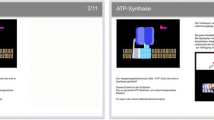Abstract
Limited processing capacity constrains learning and performance in complex cognitive tasks. In traditional instruction, novices' failure to adequately learn cognitive tasks can often be attributed to the inappropriate direction of attention and the related high or excessive load that is imposed on a learner's cognitive system. An instructional design model for the training of complex cognitive tasks should provide instructional strategies that control cognitive load. We propose such a model and recommend research in which the cognitive load of instructional manipulations is systematically investigated and determined with mental-effort based measures.
Similar content being viewed by others
References
Aasman, J., Mulder, G., and Mulder, L. J. M. (1987). Operator effort and the measurement of heart-rate variability.Hum. Factors 29: 161–170.
Anderson, J. R. (1983).The Architecture of Cognition, The Harvard University Press, Cambridge.
Anderson, J. R. (1987). Skill acquistion: Compilation of weak-method problem solutions.Psychol. Rev. 94: 192–210.
Anderson, J. R., Boyle, C. F., Corbett, A., and Lewis, M. (1986). Cognitive Modelling and Intelligent Tutoring. Carnegie-Mellon University, Psychology Department, Pittsburgh, PA (Tech. Rep. No. ONR-86-1).
Chandler, P., and Sweller, J. (1991). Cognitive load theory and the format of instruction.Cognit. Instr. 8: 293–332.
Chandler, P., and Sweller, J. (1992). The split-attention effect as a factor in the design of instruction.Brit. J. Educat. Psychol. 62: 233–246.
Chi, M., Glaser, R., and Rees, E. (1982). Expertise in problem-solving. In Sternberg, R. (ed.),Advances in the Psychology of Human Intelligence, Lawrence Erlbaum Associates, Hillsdale, New Jersey, pp. 7–75.
Cooper, G., and Sweller, J. (1987). Effects of schema acquisition and rule automation on mathematical problem-solving transfer.J. Educat. Psychol. 79: 347–362.
Cristensen, B. R. (1982).Beginning Comal, Ellis Horwood, Chichester.
Dufresne, R. J., Gerace, W. J., Hardiman, P. T., and Mestre, J. P. (1992). Constraining novices to perform expertlike problem analyses: Effects on schema acquisition.J. Learning Sci. 2: 307–331.
Fabiani, M., Buckley, J., Gratton, G., Coles, M. G. H., Donchin, E., and Logie, R. (1989). The training of complex task performance.Acta Psychol. 71: 259–299.
Fisk, A. D., and Gallini, J. K. (1989). Training consistent components of tasks: Developing an instructional system based on automatic/controlled processing principles.Hum. Factors 31: 453–463.
Frederiksen, J. R., and White, B. Y. (1989). An approach to training based upon principled task decomposition.Acta Psychol. 71: 89–146.
Gopher, D., and Braune, R. (1984). On the psychophysics of workload: Why bother with subjective measures?Hum. Factors 26: 519–532.
Gopher, D., Weil, M., and Siegel, D. (1989). Practice under changing priorities: An approach to the training of complex skills.Acta Psychol. 71: 147–177.
Hamilton, P. (1979). Process entropy and cognitive control: Mental load in internalized thought processes. In Moray, N. (ed.),Mental workload: Its Theory and Measurement, Plenum, New York, pp. 289–298.
Jahns, D. W. (1973). A Concept of Operator Workload in Manual Vehicle Operations. Forschungsinstitut Anthropotechnik, Meckenheim, West Germany (Technical report No. 14).
Jelsma, O., and Pieters, J. M. (1989). Practice schedule and cognitive style interaction in learning variants of a maze task.J. Appl. Cognit. Psychol. 3: 73–83.
Jelsma, O., and Van Merriënboer, J. J. G. (1989). Contextual interference: Interactions with reflection-impulsivity.Percept. Motor Skills 68: 1055–1064.
Jelsma, O., Van Merriënboer, J. J. G., and Bijlstra, J. (1990). The ADAPT design model: Towards instructional control of transfer.Instr. Sci. 19: 89–120.
Larkin, J., McDermott, J., Simon, D., and Simon H. (1980). Models of competence in solving physics problems.Cognit. Sci. 4: 317–348.
Mayer, R. E., and Greeno, J. G. (1972). Structural differences between learning outcomes produced by different instructional methods.J. Educat. Psychol. 63: 165–173.
Meshkati, N. (1988). Toward development of a cohesive model of workload. In Hancock, P. A., and Meshkati, N. (eds.),Human Mental Workload pp. 305–314.
Myers, G. L., and Fisk, A. D. (1987). Application of automatic and controlled processing theory to industrial task training: The value of consistent component training.Hum. Factors 29: 255–268.
Mulder, L. J. M. (1988). Assessment of Cardiovascular Reactivity by Means of Spectral Analysis. Unpublished doctoral dissertation, University of Groningen, Groningen, The Netherlands.
Mulder, L. J. M. (1992). Measurement and analysis methods of heart rate and respiration for use in applied environments. Biol. Psychol. 34: 205–236.
Owen, E., and Sweller, J. (1985). What do students learn while solving mathematics problems?J. Educat. Psychol. 77: 272–284.
Paas, F. G. W. C. (1992). Training strategies for attaining transfer of problem-solving skill in statistics: A cognitive-load approach.J. Educat. Psychol. 84: 429–434.
Paas, F. G. W. C., and Van Merriënboer, J. J. G. (1993). The efficiency of instructional conditions: An approach to combine mental-effort and performance measures.Hum. Factors 35: 737–743.
Paas, F. G. W. C., and Van Merriënboer, J. J. G. (1993). Variability of worked examples and transfer of geometrical problem-solving skill: A cognitive-load approach.J. Educat. Psychol. 86: 122–133.
Paas, F. G. W. C., Van Merriënboer, J. J. G., and Adam, J. J. (1994). Measurement of cognitive load in instructional research.Percept. Motor Skills 79: 419–430.
Proctor, R. W., and Reeve, T. G. (1988). The acquisition of task-specific productions and modification of declarative representations in spatial pre-cuing tasks.J. Exp. Psychol.: General 117: 182–196.
Reigeluth, C. M. (1983). Instructional design: What is it and why is it? In Reigeluth, C. M. (ed.),Instructional Design Theory and Models, Erlbaum Associates, Hillsdale, NJ, pp. 3–36.
Sanders, A. F. (1979). Some remarks on mental load. In: Moray, N. (ed.),Mental Workload: Its Theory and Measurement, Plenum, New York, pp. 41–77.
Schneider, W. (1985). Training high-performance skills: Fallacies and guidelines.Hum. Factors 27: 285–300.
Schneider, W., and Shiffrin, R. M. (1977). Controlled and automatic human information processing: I. Detection, search, and attention.Psychol. Rev. 84: 1–66.
Shiffrin, R. M., and Schneider, W. (1977). Controlled and automatic human information processing: II. Perceptual learning, automatic attending, and a general theory.Psychol. Rev. 84: 127–190.
Sweller, J. (1988). Cognitive load during problem solving: Effects on learning.Cognit. Sci. 12: 257–285.
Sweller, J. (1989). Cognitive technology: Some procedures for facilitating learning and problem-solving in mathematics and science.J. Educat. Psychol. 4: 457–466.
Sweller, J., and Cooper, G. A. (1985). The use of worked examples as a substitute for problem-solving in learning algebra.Cognit. Instr. 2: 59–89.
Sweller, J., Chandler, P., Tierney, P., and Cooper, M. (1990). Cognitive load as a factor in the structuring of technical material.J. Exp. Psychol.: General 119: 176–192.
Tarmizi, R. A., and Sweller, J. (1988). Guidance during mathematical problem-solving.J. Educat. Psychol. 80: 424–436.
Tulga, M. K., and Sheridan, T. B. (1980). Dynamic decisions and workload in multitask supervisory control.IEEE Trans. Syst., Man, Cybernet. 10: 217–232.
Van Merriënboer, J. J. G. (1990a). Strategies for programming instruction in high school: Program completion vs. program generation.J. Educat. Comp. Res. 6: 265–287.
Van Merriënboer, J. J. G. (1990b).Teaching Introductory Computer Programming: A Perspective from Instructional Technology, Bijlstra and Van Merriënboer, Enschede, The Netherlands.
Van Merriënboer, J. J. G., and De Croock, M. B. M. (1992). Strategies for computer-based programming instruction: Program completion vs. program generation.J. Educat. Comp. Res. 8: 365–394.
Van Merriënboer, J. J. G., and Paas, F. G. W. C. (1990). Automation and schema acquisition in learning elementary computer programming: Implications for the design of practice.Comp. Hum. Behav. 6: 273–289.
Van Merriënboer, J. J. G., Jelsma, O., and Paas, F. G. W. C. (1992). Training for reflective expertise: A four-component instructional design model for complex cognitive skills.Educat. Technol. Res. Devel 40: 23–43.
Ward, M., and Sweller, J. (1990). Structuring effective worked examples.Cognit. Instr. 7: 1–39.
Yeh, Y.-Y. and Wickens, C. D. (1988). Dissociation of performance and subjective measures of workload.Hum. Factors 30: 111–120.
Zhu, X., and Simon, H. (1987). Learning mathematics from examples and by doing.Cognit. Instr. 4: 137–166.
Author information
Authors and Affiliations
Rights and permissions
About this article
Cite this article
Paas, F.G.W.C., Van Merriënboer, J.J.G. Instructional control of cognitive load in the training of complex cognitive tasks. Educ Psychol Rev 6, 351–371 (1994). https://doi.org/10.1007/BF02213420
Issue Date:
DOI: https://doi.org/10.1007/BF02213420




